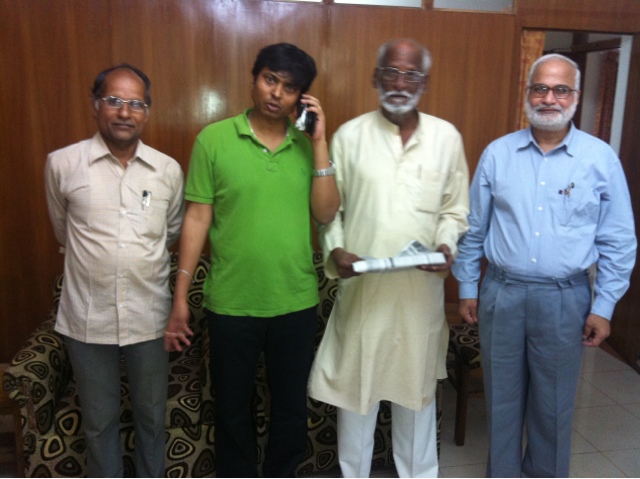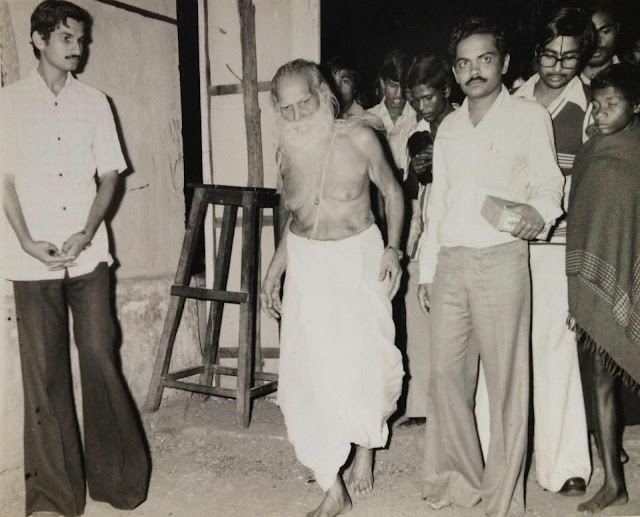1. Levi puts it so brilliantly. But, the chasm between the aspirational and the actual constitutes the age-old conundrum for humanity and the very confidence that it can be resolved is perhaps misplaced. Philosophy, however, allows to confront the issue with clarity.
Larval Subjects . - Liberalism and Identity Politics - [Over at An und fur Sich, Marika Rose has an interesting post up on some of the difficulties with the left’s criticism of identity politics. ... Liberalism entertains the fantasy of a harmony between capitalism and cultural politics, which compels it to discern all struggles of the oppressed and unequal purely at the level of abstract rights and equality, ignoring the way in which inequality and oppression are built into the very fabric of the material world itself at the level of infrastructures, technologies, labor, and destruction of the natural environment in capitalism’s unquenchable pursuit of capital. It’s fantasy is that cultural inequality can be addressed purely at the level of the symbolic without hindering capitalism’s pursuit of capital in any way. By contrast, the radical politics that Kotsko alludes to sees all of these struggles as symptoms of the overarching horizon of life under capitalism in the anthropocene. Absolute emancipation cannot simply be symbolic, it can’t merely be a matter of recognizing and tolerating others, it can’t merely be a matter of possessing abstract rights. Absolute emancipation must also be material emancipation and the opportunity to live in an embodied world that is not toxic.]
2. Three extracts below examine the role of philosophy from different angles:
enowning - The News, Karachi, on philosophy in Pakistan.
[Among the different reasons for the lack of philosophy here is the tendency to find refuge in the security of comfort – whether economic, social or intellectual. Unlike other disciplines, philosophy seeks to disrupt normal habits of thinking about life by forcing one to search for answers to questions that may not be answered in his lifetime. This makes philosophical thinking incongruent with time and space. That is why Martin Heidegger deems that “all essential philosophical questioning is necessarily untimely”. Only by becoming untimely does philosophy become timeless, and the questions it raises remain intact beyond time and space. However, for a complacent mind it is easy to become timely than untimely, for the latter entails an excruciating excursion into realms that are mentally demanding and may cause alienation from mainstream society.]
UN News Centre-17-Nov-2016
[Philosophy teaches us to reflect on reflection itself, to question well-established truths, and to verify hypotheses in order to find conclusions. This kind of inquiry has been practiced for centuries in cultures around the world and has generated the basis for critical, independent, and creative thought.
“Philosophy does not offer any ready-to-use solutions, but a perpetual quest to question the world and try to find a place in it,” explained Ms. Bokova. “Along this road, tolerance is both a moral virtue and a practical tool for dialogue.”
World Philosophy Day is of particular importance to the United Nations as it provides conceptual bases of principles and values on which world peace depends: democracy, human rights, justice, and equality.]
[Sri Aurobindo as a World Philosopher - Indra Sen
Sri Aurobindo’s philosophy, while being spiritualist, upholds reason. It regards reason, for the present evolutionary stage of man, as an indispensable instrument of organisation and action. Without it we cannot organise our external situation nor act in it in an orderly manner. Reason arranges and organises our ideas and gives them a systematic form, and that means effective communication, understanding, and action. But it works upon the data of superficial qualities of things supplied to it by the senses and proceeds laboriously piecemeal trying to construct inferential knowledge of facts beyond the superficial qualities. It has no direct access to the essences or true nature of things. This is clearly a justification of reason as well as a demonstration of its limitation and an indication of other instruments of knowledge which would make rapprochement of Western rationalist philosophy with other philosophies easier and also show to it a possible line for its own further development. The empiricism of Western philosophy receives, surprisingly enough, even a stronger support from Sri Aurobindo. His thought is fundamentally determined by the yogic approach.] (Sraddha - November 2016 Philosophy East and West journal in vol.7, No.3/4 Oct 1957-Jan 1958)
3. Finally, the following extract summarises the ontological secret that The Mother & Sri Aurobindo put forth emphasising human finitude. That does not mean we lose hope as harmony in a concrete form is the very theme of The Life Divine by Sri Aurobindo. [TNM55]
Home » Disciples » Alok Pandey, Dr. » English » Death Dying And Beyond - Page-14: The Inner Dimension Of Death
[Centralisation is indeed the process of focal concentration necessary for creating anything. For without such a centralizing concentration there would be nothing but an indeterminate chaos. The universal planes of consciousness themselves are formed through a process of concentration and condensation of the One Consciousness. These universal planes in their turn get focused and reflected in an individual once again through the same process. The soul in us chooses the elements out of universal nature and channelises them through its will so as to form a unique body with its unique life-mind constitution based upon its need of certain experiences for growth and mastery. It is like a gymnast choosing certain equipment out of a wide variety so as to develop one aspect of his body through a certain set of physical exercises. So too the secret soul in us chooses certain formations of nature including the difficulties and challenges so as to develop certain sides of our self-experience in each birth. The choice is made based upon its past experiences, the need for a certain developmental training in the present and most importantly, its hidden agenda for the future. It is this and not a mechanical machinery of karma and heredity that forms us. And it is from this deepest standpoint that we say that our soul is the author of our fate. Heredity, environment, karma are all nothing else but machineries and processes of nature that the soul uses to make its choices. It chooses our life and circumstance, it chooses the experiences of life and when the need for a particular experience is over and it can go no further then it chooses to move out of a particular formation of nature, rest for a while to gather the essence of its experiences, and return back for further growth. The will of the soul binds it to the earth with a divine purpose and not some illusion or accident and it is the will of the soul that makes it leave this house of matter and not some frightful agency of death.]




No comments:
Post a Comment